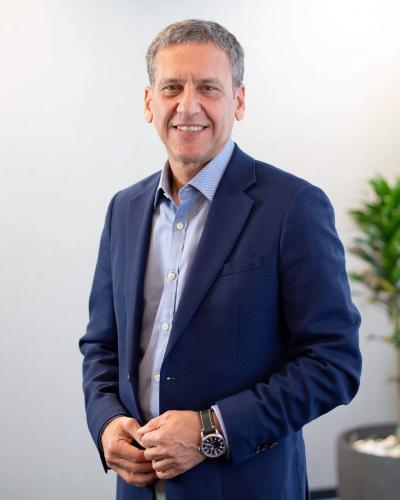Hamid Akhavan has joined Dish Network as president and CEO, in addition to his current role as CEO and president of EchoStar.

The change in leadership was announced when the EchoStar/Dish merger was unveiled in August, but at that time, the switchover was expected to happen at the close of the merger.
The merger is still undergoing regulatory review, but former Dish President and CEO Erik Carlson notified the company on November 3 that he would hasten his departure, leaving November 12, after 28 years with the company. It turns out, he’s now CEO of RE/MAX Holdings, the parent company of brokerage firm RE/MAX. His appointment was announced by RE/MAX today.
Akhavan & wireless
Akhavan will oversee all aspects of the company's video services and wireless businesses, as well as its subsidiaries. When the merger is finalized, Dish will become a subsidiary of EchoStar.
Akhavan brings to the Dish role some wireless savvy – he was COO at Deutsche Telekom for a 10-month stint and was CEO of T-Mobile International for a little over two years, from December 2006 to March 2009. Before that, he was the Washington, D.C.-based CEO of Teligent for about five years, according to his LinkedIn profile.
"Hamid brings a unique set of skills to Dish, building off his experience in the technology, telecom, private equity and investment sectors," said Charlie Ergen, co-founder and chairman of Dish, in a statement today. "An engineer by background, he's financially astute and a seasoned manager. He currently serves EchoStar, Dish's sister company, as CEO and will lead both companies in order to hit the ground running, once the merger with EchoStar is complete."
Dish’s uphill battle
All of this comes on the heels of, according to Wall Street analyst Craig Moffett, Dish’s “astonishingly bad” Q3 results last week. Dish also revealed last week that about 500 Dish employees in Colorado are losing their jobs.
The company, set up to be a fourth facilities-based carrier through the T-Mobile/Sprint merger, has been struggling to launch a bona-fide postpaid wireless service, Boost Infinite, and it’s been steadily losing customers in the Boost Mobile prepaid business.
Dish has made slow progress over the past year. In July, it received recognition from the FCC for meeting 5G network buildout requirements, serving 5G broadband to over 73% of the U.S. population, or more than 246 million Americans nationwide. It also announced that it would sell Boost Infinite through Amazon with an exclusive Prime offer. It’s making progress on Voice over New Radio (VoNR), the 5G version of mobile voice services.
It certainly could use the 800 MHz spectrum available to it through the T-Mobile/Sprint transaction to compete with the incumbent carriers, but it doesn’t have the capital to buy it right now. Dish managed to get a six-month extension on that deal, but Moffett argued in a report last week that Dish’s Q3 results only accelerate the probability it will enter bankruptcy.
During last week’s Q3 conference call, Ergen acknowledged Dish has not done a great job of marketing in the wireless space and Boost currently isn’t in Apple stores today where its rivals are available. But he talked up Dish’s network prowess and 21st century, data-centric architecture.
“We have a narrow path but there is a path for us to achieve financial stability and make sure we meet our commitments,” he said. “Having been through this for a long time, we’ve had narrow paths before.”

